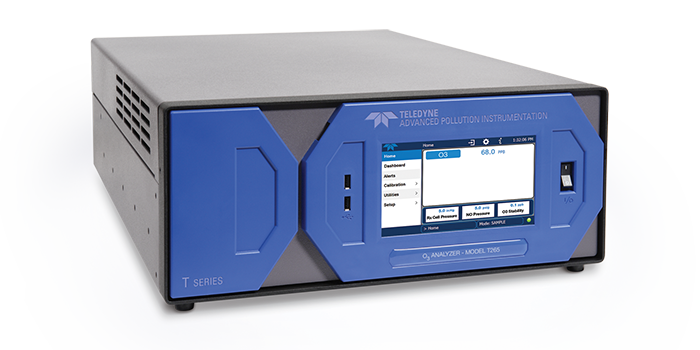
SAN DIEGO, Calif., May 20, 2021 -- Teledyne API, a global air quality monitoring instrumentation leader and business unit of Teledyne Technologies Incorporated (NYSE:TDY), announced today a study was conducted by the United States Environmental Protection Agency (US EPA) highlighting the company’s unique
Model T265 Chemiluminescence ambient Ozone (O3) gas analyzer.
The study examines the performance of two different ambient ozone monitoring technologies (UV Photometry and Chemiluminescence) in wildland fire smoke conditions. UV Photometric-based O3 gas instruments are the most widely used in the US EPA national regulatory air monitoring network, with approximately 1,300 instruments currently reporting data for regulatory compliance throughout the U.S. However, these instruments are known to overestimate O3 gas concentrations in the presence of interfering compounds found in wildfire smoke.
Teledyne API provides the popular UV Photometric-based O3 gas instruments (
Model T400), but also utilizes Nitric Oxide-Chemiluminescence (NO-CL) in its
Model T265 ambient O3 gas instrument. This study clearly demonstrates the advantages of this technique in wildland fire smoke environments, providing interference- and trouble-free operation in this challenging environment. The instrument received US EPA Federal Reference Method (FRM) designation in 2015 and is becoming recognized as the most accurate commercially available method for assessing ambient O3 gas concentrations.
“An accurate ozone monitoring method, free of any potential interferences, will enhance the ability of the states to accurately separate true ozone concentration from other measurements at sites impacted by wildland fire smoke,” said Russell Long, the lead EPA researcher on this study.
About Teledyne API
Teledyne API designs and builds precision air quality and industrial gas monitoring instrumentation at its headquarters and factory in San Diego, California, United States. These instruments are used worldwide in ambient air quality monitoring systems (AQMS), continuous emissions monitoring systems (CEMS) and industrial process applications. For more information, visit Teledyne API’s website at
www.teledyne-api.com.
